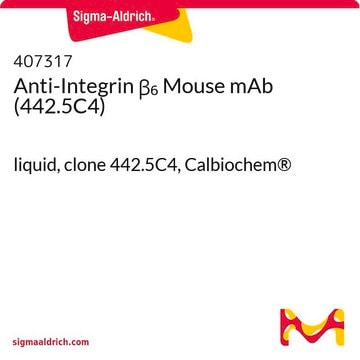MAB2074Z
Anti-Integrin αVβ6 Antibody, clone E7P6, azide free
clone E7P6, Chemicon®, from mouse
Synonym(s):
MAB2074
About This Item
Recommended Products
biological source
mouse
Quality Level
antibody form
purified immunoglobulin
antibody product type
primary antibodies
clone
E7P6, monoclonal
species reactivity
human
manufacturer/tradename
Chemicon®
technique(s)
flow cytometry: suitable
immunocytochemistry: suitable
immunohistochemistry: suitable
isotype
IgG1
suitability
not suitable for activity/function inhibition
not suitable for immunohistochemistry (Paraffin)
NCBI accession no.
UniProt accession no.
shipped in
wet ice
target post-translational modification
unmodified
Gene Information
human ... ITGAV(3685)
Related Categories
Specificity
Immunogen
Application
Immunocytochemistry: Effective for F6, HT-29, H441 cell lines (others not tested).
Flow cytometry: Effective for detection of human and monkey alphaVbeta6
Not effective for immunoprecipitation or western blot.
Optimal working dilutions must be determined by end user.
Cell Structure
Integrins
Physical form
Storage and Stability
Legal Information
Disclaimer
Not finding the right product?
Try our Product Selector Tool.
recommended
Storage Class
12 - Non Combustible Liquids
wgk_germany
WGK 2
flash_point_f
Not applicable
flash_point_c
Not applicable
Certificates of Analysis (COA)
Search for Certificates of Analysis (COA) by entering the products Lot/Batch Number. Lot and Batch Numbers can be found on a product’s label following the words ‘Lot’ or ‘Batch’.
Already Own This Product?
Find documentation for the products that you have recently purchased in the Document Library.
Our team of scientists has experience in all areas of research including Life Science, Material Science, Chemical Synthesis, Chromatography, Analytical and many others.
Contact Technical Service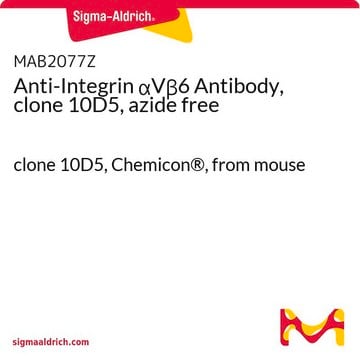
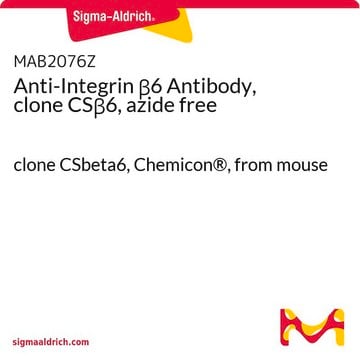

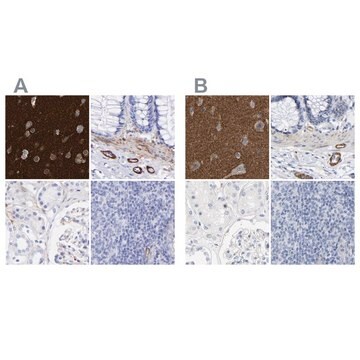
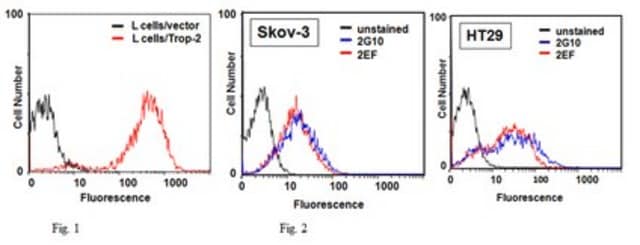
![CDP-Star® Disodium 2-chloro-5-(4-methoxyspiro {1,2-dioxetane-3,2′-(5′-chloro)tricyclo[3.3.1.13,7 ]decan}-4-yl)-1-phenyl phosphate](/deepweb/assets/sigmaaldrich/product/structures/224/846/d08963f5-c8ba-42e6-b4f7-9ee7fd76d809/640/d08963f5-c8ba-42e6-b4f7-9ee7fd76d809.png)



